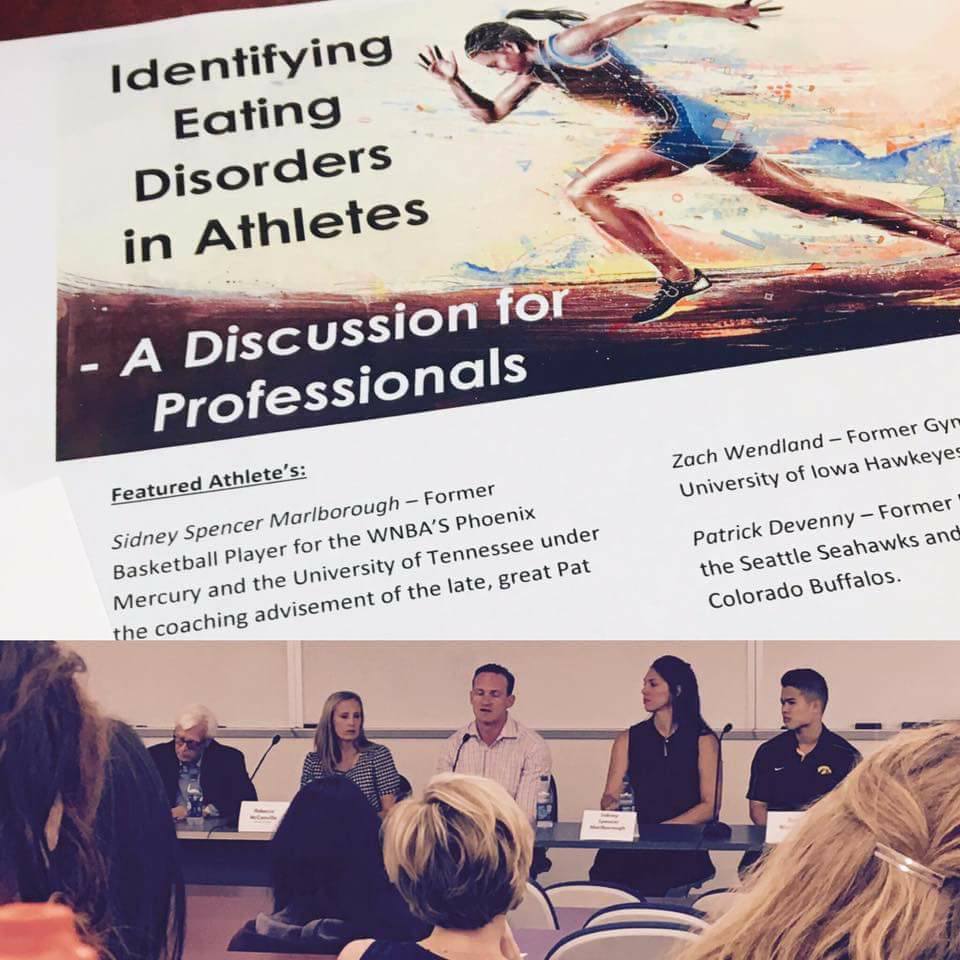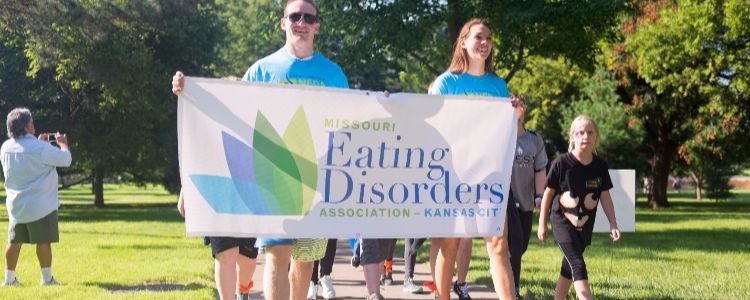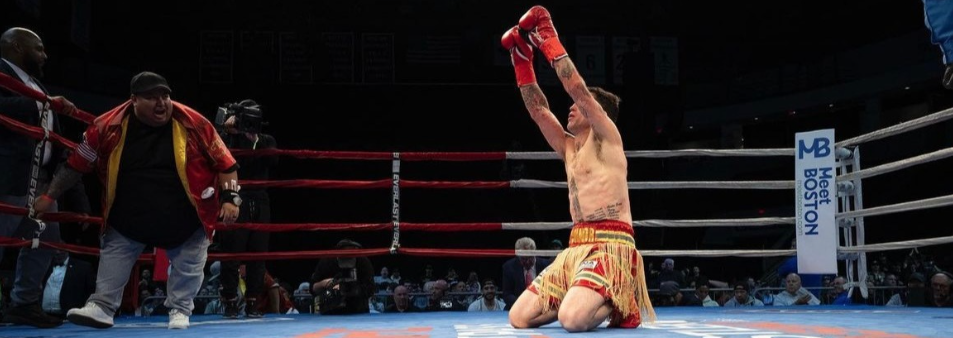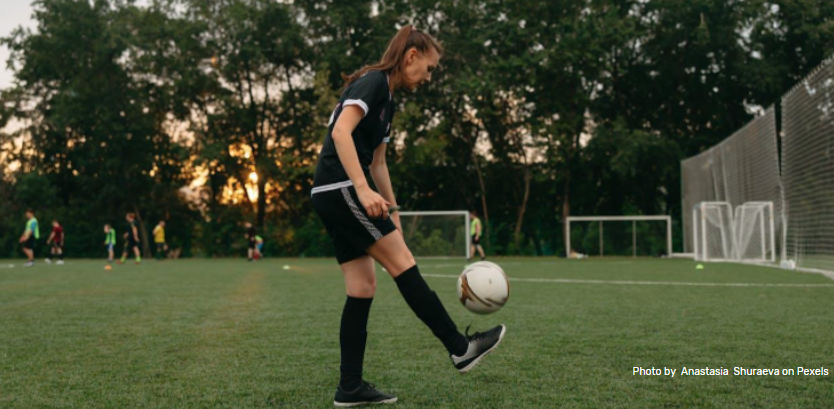August generally marks the start of school, back to hectic schedules and anticipation of what the new year might bring. To some this may bring about memories of triumphs; however, for others it could serve as a reminder of how far is left on their journey.
August also serves as the annual NEDA Walk for the Kansas City metro area. Historically, the day before is a date for professional education. This year had a unique spin when MOEDA hosted Identifying Eating Disorders in Athletes: A Discussion for Professionals. The panel consisted of three brave, inspiring athletes sharing their stories of struggles and triumphs along with two professionals in the field, Ron Thompson, a pioneer in the world of eating disorders in sport with 30+ years clinical expertise, and myself, a sports dietitian who specializes in the treatment of athletes with eating disorders.
The three athletes had unique stories yet shared common “call to actions.” Two male athletes shared their stories for the first time, echoing the need for increased awareness and education for males suffering from eating disorders.

Patrick Devenny (Seattle Seahawks/University of Colorado football) discussed how he knew that his struggle with binge eating and body image was a problem yet struggled to find resources for help. Mostly everything was geared toward females and he felt embarrassed that he could not find help for himself. Patrick’s messages to other athletes out there was, “Athletes need to know the signs of eating disorders so they can be aware that if they are experiencing any of them then they should know that they are not alone and they don’t need to live that sort of mental anguish.”
Zach Wendland (Iowa Hawkeye gymnast and competitive gymnast since age four) discussed how, had it not been for his athletic trainers’ awareness, he may not have gotten the help that he needed and deserved. Zach shared how many times his performance actually improved temporarily making it even more difficult for others to see a problem. Eventually, injuries and the toll on his body drove Zach to seek help. Zach is now attending the University of Kansas Medical Center to become a sports medicine physician and continue his advocacy for eating disorders.
Sidney Spencer (retired WNBA player and former Tennessee Vol) spoke of how her eating disorder escalated later in her career while in the WNBA. During her collegiate career, she was surrounded by resources that helped her stay healthy; however, she was surprised to realize that as a pro she didn’t have readily-accessible resources. Sidney shared, “It is hard at any age to walk through an eating disorder but it was especially hard as a pro because of three reasons. First, I didn’t want to acknowledge my struggle, which was my identity being consumed by my sport performance. Secondly, I was afraid to say anything once I realized I had an issue. Third, the resources and support were not as readily available. However, I think this is changing now as we begin to speak out about it.
Sidney urges others that it’s important for athletes to realize that “It’s okay to not be okay, but you have to ask for help!“
If you work with an athlete with negative body image issues who is showing signs of an eating disorder, your support and guidance can play a significant role in their healthy recovery. Take a look at our resources tailored to coaches here.





